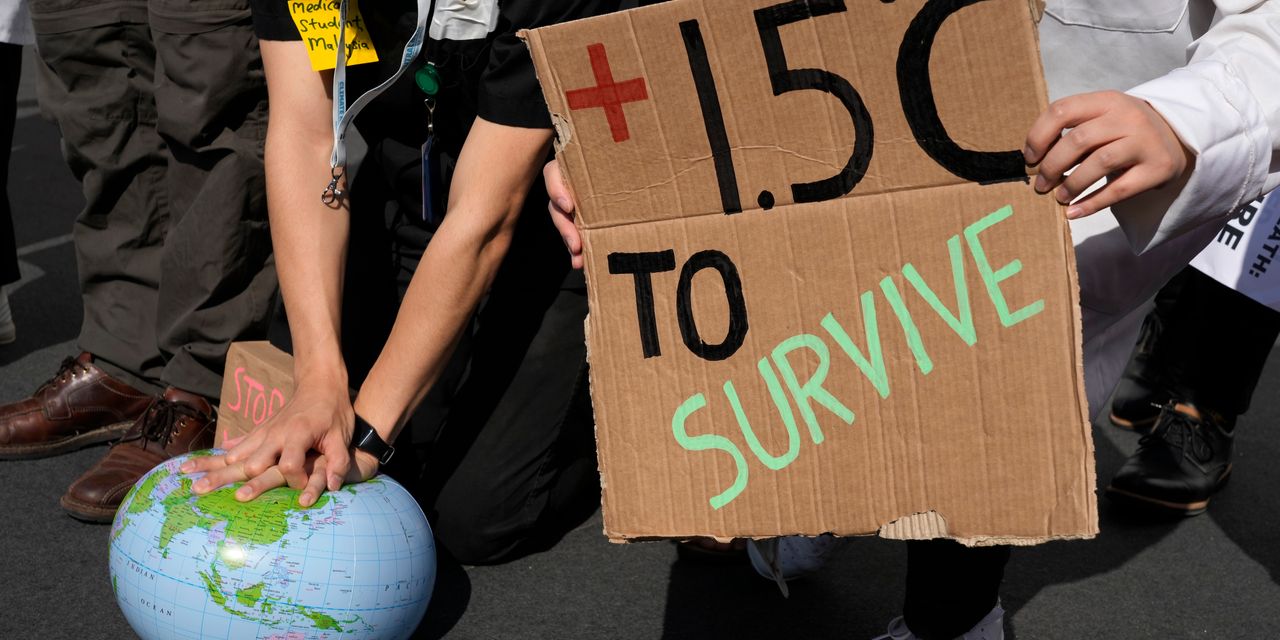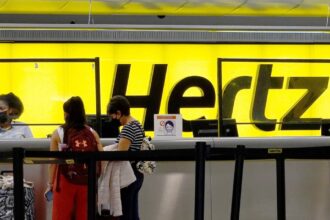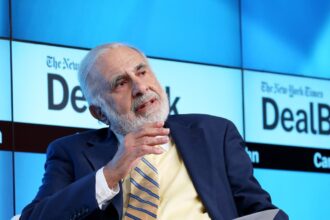Over the last few weeks the second biggest bank collapse in 16 years rocked the world. Self-inflicted deregulation is to blame, with a far more troubling undercurrent: failure of risk management.
If the foreseeable risks of inflation and interest rates were surprising, many banks have another crisis coming. The juggernaut is climate-change risk in all its forms.
Many of the world’s biggest banks claim to address climate risk by making lofty pledges to achieve net-zero emissions. They’re largely based on carbon market programs that are ineffective and violate human rights. And as U.N. Secretary General Antonio Guterres has remarked, using corporate net-zero pledges to cover fossil fuel expansion
CL00,
is “rank deception.”
Related: Climate tech risked becoming banking-crisis casualty. What’s next for solar, batteries and more?
The bottom line for action is cash, not empty pledges and false solutions. Where is the financing for the future of energy and a just transition, and thus, our future economy?
The recent U.N. Intergovernmental Panel on Climate Change (IPCC) report released just a few weeks ago urges financial-sector majors to scale up climate finance to address climate adaptation and mitigation. The fact that financing is not already there underscores how banks miscalculate what must be done to deal with present climate risk and the very near future of runaway climate chaos.
“ Where is the financing for the future of energy and a just transition, and thus, our future economy? ”
The threat of climate instability could not be clearer in the IPCC report. The climate chaos predicted will have a larger impact at lower temperatures than previously thought. Every increment of global warming will make weather extremes more disruptive, causing widespread damages to communities and natural ecosystems, as well as dire impacts to economies, according to the report.
Despite promising for years to address climate change and adhere to the 2015 Paris Climate Agreement goal of limiting warming to below 1.5 degrees C, banks continue to prop up the biggest carbon culprits — fossil fuel companies
XOM,
CVX,
Regulators may try to bail them out again when the shockwaves of climate chaos hit the banks because they’re too big to fail, but they’re not too big to fail humanity.
How much capital is still being directed to fossil fuels, despite the risk? What did banks do in the face of extreme fossil fuel volatility? Which banks are fluent in doublespeak, such as when they claim to restrict Arctic oil drilling yet finance companies like ConocoPhillips
COP,
that is building the Willow Project?
“ Regulators may try to bail them out again when the shockwaves of climate chaos hit the banks because they’re too big to fail, but they’re not too big to fail humanity. ”
These questions are answered in the upcoming updated Banking on Climate Chaos report (here’s 2022’s report) from a consortium of environmental and environmental finance groups. Its intention is to cut through greenwash by exposing financing trends banks tellingly omit publishing alongside their climate commitments. Profiling the world’s 60 biggest banks
JPM,
BAC,
C,
and the deals they make with the fossil-fuel industry, we believe it is the most accurate gauge of banks’ climate commitments.
The report examines bank policy loopholes and centers the stories of our climate leaders who are leading the fight against fossil fuels and delivering climate justice. Communities on the frontlines know what must be done about climate. The report spotlights the real risks to lives and livelihoods from climate chaos, and underscores the irrefutable science that banks must shift financing away from fossil fuels.
Furthermore, the report demonstrates how banks undermine their own climate commitments by detailing their financing projects by company, sector and in ecologically sensitive areas like the Arctic and Amazon. Banks will not escape the climate chaos they are creating. None of us will.
The IPCC report is clear: there is a narrow window of opportunity — right now — to ensure a livable future for us all. Financing has a huge role to play in our climate future, but net-zero commitments fail to mitigate climate risk as money still flows to fossil fuels. This is the last chance for banks to act and put the cash where it belongs.
Aditi Sen is the director of the Climate & Energy Program for the Rainforest Action Network (RAN).
Read the full article here










